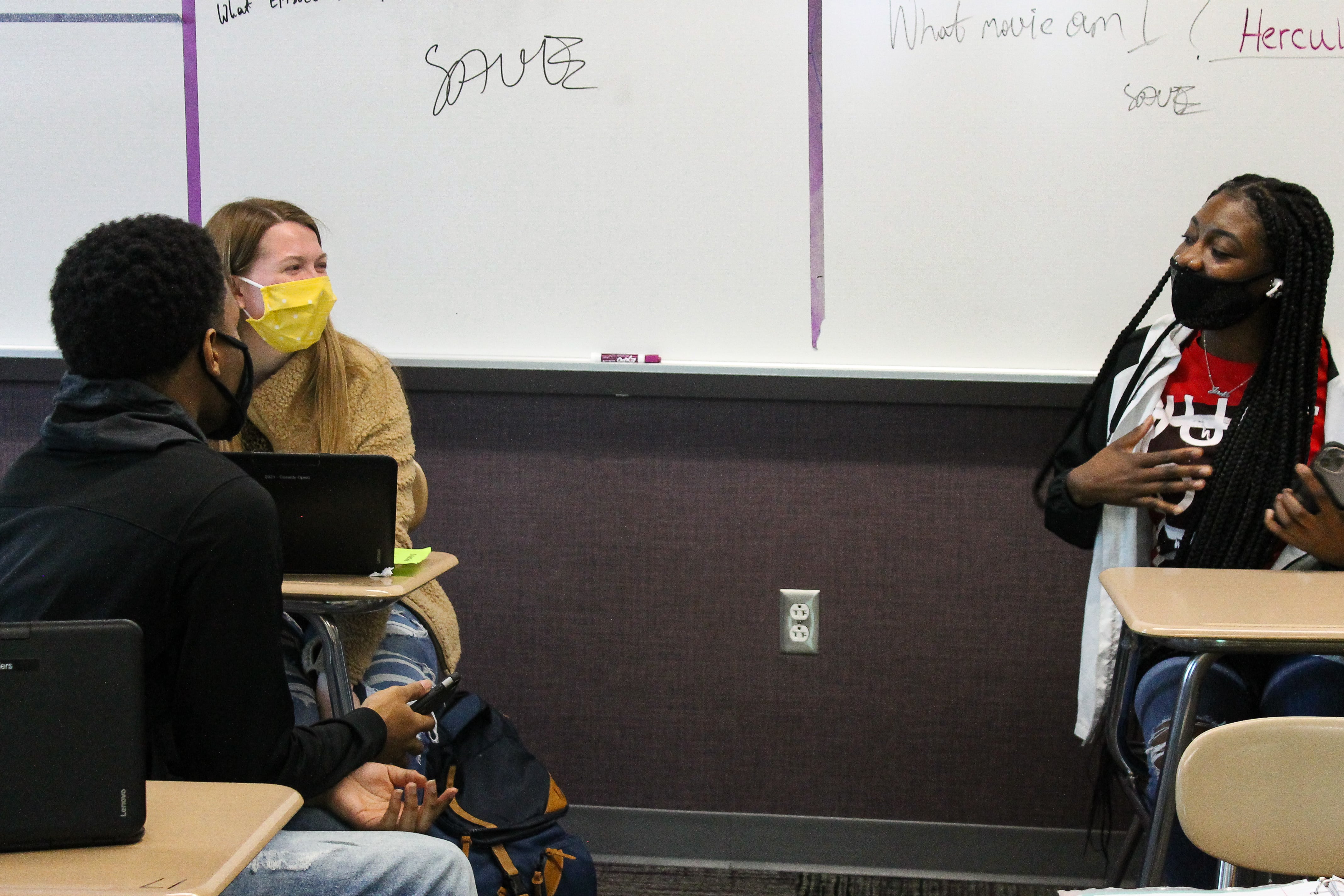As decisions on COVID restrictions fall to local Indiana school boards this week, many have elected to stop requiring masks, while others are waiting for more public health guidance.
Gov. Eric Holcomb’s school mask mandate is set to expire Thursday, releasing schools from state and national restrictions, except for a federal transportation rule that will still require face masks on school buses.
Districts including Westfield Washington, Center Grove, Hamilton Southeastern, and Brownsburg schools have declared mask-optional policies. Others, including Carmel Clay and Wayne Township, said masks will only be optional for vaccinated people — though they did not explain how they would enforce this policy.
Many other districts, including Indianapolis Public Schools and Evansville Vanderburgh Schools, haven’t released a decision on masks. All the school reopening plans could change if public health guidance shifts.
Several districts with mask-optional policies are in counties with high vaccination rates — in Hamilton County, which contains Westfield, Hamilton Southeastern, and Carmel schools, the rate is nearly 68%. But Prairie Heights Community Schools, a rural district in northern LaGrange County, which has the lowest vaccination rate in the state at less than 23%, also has decided against requiring masks this fall.
Dr. Virginia Caine, director of Marion County’s public health department, said she’s concerned about students returning to school without masks, especially because most K-6 students are ineligible for a COVID vaccine.
“They may get infections where they can be asymptomatic, have no symptoms, and unknowingly be able to spread that infection — not only to other kids in the classroom, but maybe to some family members, grandparents, that may be at really high risk for life-threatening complications,” Caine said.
But Caine said this risk must be balanced with the harmful effects of extending mask mandates for more than a year. Masks are uncomfortable for children, she said, and can disrupt their learning.
Caine said her department will release guidance for schools in the next few weeks, which will be determined in part by the spread of the delta COVID variant. The delta variant, estimated to be 60% more transmissible than the original strain of coronavirus, has prompted some health experts to caution schools against loosening restrictions. As of Monday, 154 cases of the delta variant had been identified in Indiana.
The CDC and the state have provided some guidelines for a safe return to classrooms, but haven’t always spelled out how schools should implement them.
For example, state guidance recommends all unvaccinated students, including those under age 12 who are not yet eligible for any vaccine, continue wearing masks inside. But how do you enforce masking for a select group of students, without knowing — or being able to ask — who has been vaccinated and who hasn’t?
“In terms of enforcing something like that, that would not be something we would be doing,” said Jason Woebkenberg, spokesperson for Evansville Schools. “We don’t ask who has not been vaccinated.”
Despite this, rumors of plans to segregate students based on vaccination status resulted in a protest before an Evansville school board meeting last week, where dozens gathered outside, toting signs that read, “No masks, no vax, or no re-election.”
Evansville, Indiana’s third-largest school district, hasn’t decided what its fall mask policy will be. But Woebkenberg said pressure from some community members won’t play into the district’s decision.
“While we did have a somewhat small group of protesters, certainly that’s not something that’s going to sway us,” Woebkenberg said. “All of our decisions will be made on expert level guidance.”





